Women for 2020: Is the Future Female?
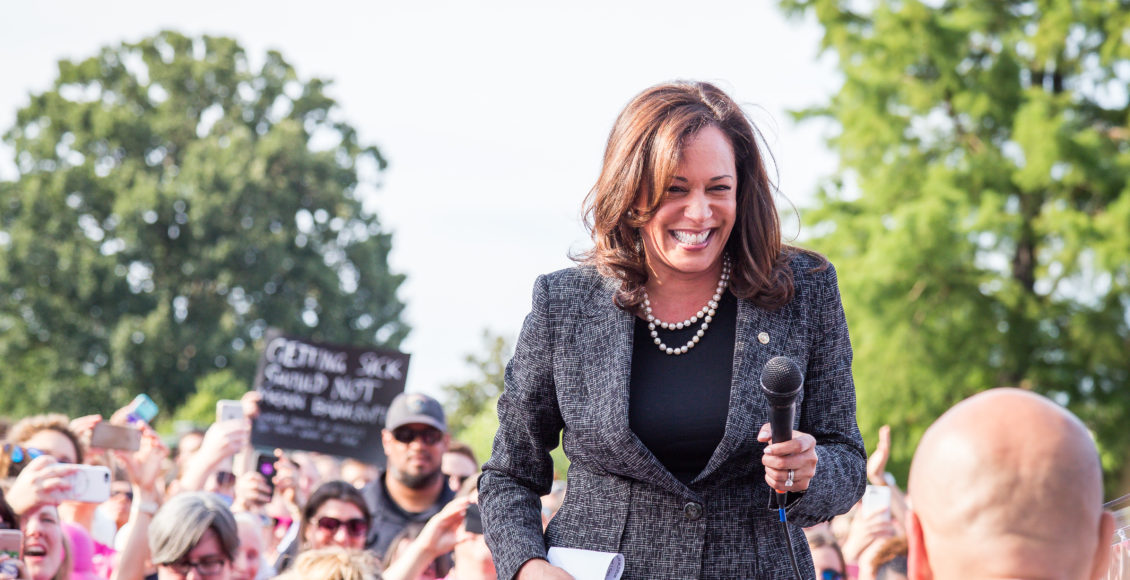 "Linking Together: March to Save Our Care" Rally at the U.S. Capitol on June 28, 2017.
"Linking Together: March to Save Our Care" Rally at the U.S. Capitol on June 28, 2017.
At the time of writing, five women have formally declared that they are running for President in 2020, and one has announced an exploratory committee (meaning that she is technically not in the running yet, but likely will be soon).
In 2016, there were just two female candidates in total, only one of which had a realistic shot at the oval. In a sense this made it easier for voters; Hillary Clinton was the sole female front runner. She was The Woman. This makes the 2020 race so much more interesting, because now women can distinguish themselves from the other candidates through their ideas, policies, and character. Now, gender is no longer the key political identity differentiating the candidates from one another.
So, who are the current female candidates? What do they believe in? What are their prospects?
Elizabeth Warren – “Fighting for America’s promise, for all of us”
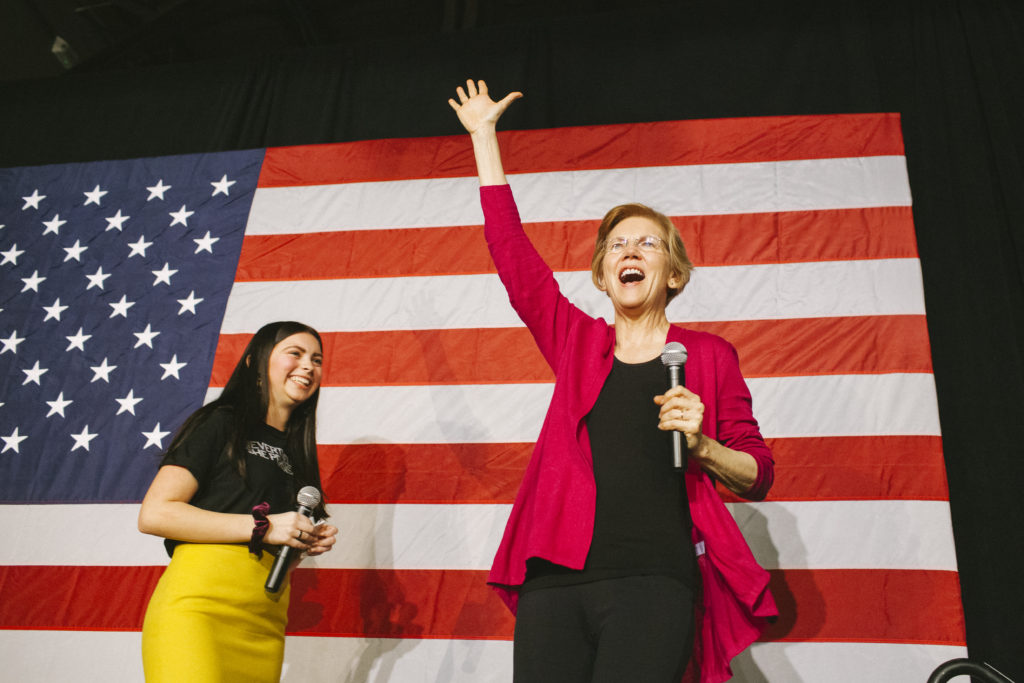
Bio: Born June 22, 1949, in Oklahoma City, Oklahoma, Elizabeth Warren grew up in a family that struggled financially. She started waiting tables at the age of 13. At age 16 she earned a scholarship to attend George Washington University, and eventually earned her law degree at Rutgers University before teaching at Harvard. Warren became a national figure during the 2008 financial crisis when she chaired the Congressional Oversight Panel for the Troubled Asset Relief Program. In 2012 she sought a Democratic Senate seat and became the first woman to represent the state of Massachusetts.
On Policy: Warren is an established scholar and politician. In contrast to other candidates (like Kamala Harris), who have focused on sweeping themes of unity and change, Elizabeth Warren’s speeches tend to articulate the more minute details of policy. An advocate for the middle class, she is known for her critiques of large corporations and big banks. Warren wants a wealth tax, which would impact people whos net-worth is greater than $50 million. This would reduce some of America’s biggest fortunes by hundreds of millions of dollars, in order to fund social programs. She is pro-choice, emphasizing how access to abortion has changed the “economic futures of women”. In 2018 she proposed the “Climate Risk Disclosure Act”, which would require companies to release information relevant to climate change, such as annual fossil fuel emissions. Warren has also advocated for the legalization of medical and recreational marijuana.
Criticism: Elizabeth Warren has faced immense criticism for her actions concerning her Native American heritage. On several occasions President Trump has mocked Warren’s past claims that she had Native American ancestry, calling her “Pocahontas” and asserting that she had used such claims to further her own career. In 2018, Warren chose to respond by posting a video, in which a genetics professor confirms that she does have Native American genes. Her rebuttal prompted an outcry from Cherokee nation. They were aggrieved by her decision to use DNA to claim association to their tribe and culture, publicly stating: “Senator Warren is undermining tribal interests with her continued claims of tribal heritage.” Although Warren has apologized privately to Cherokee nation, the embarrassing debacle is apparently still ongoing.
Could She Win?: She is a very experienced candidate, with original ideas, an inspiring backstory, and populist appeal. She also has not shied away from disputes with Trump in the past, at one point calling him a “large orange elephant”. The Washington Post pegged her as the “No. 1 Most Likely 2020 Democratic Presidential Nominee”. Yet, blunders like the Native American fiasco call her social conscientiousness into question and may harm her as the campaign progresses.
Kamala Harris – “For the People”
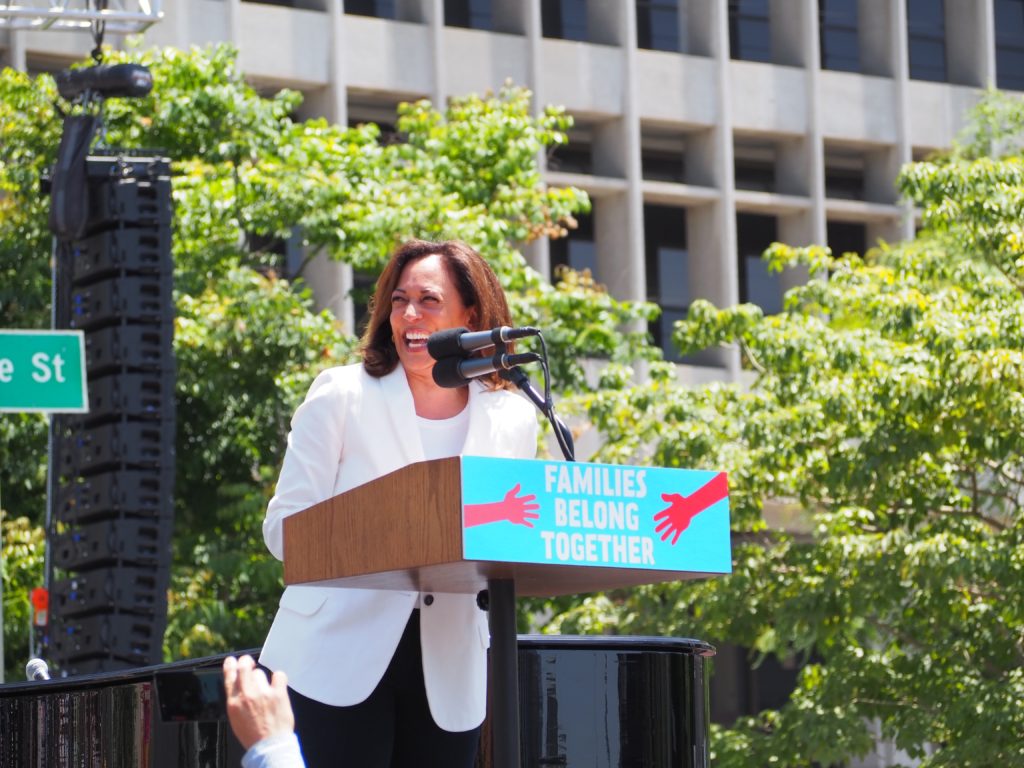
Bio: Harris was born in Oakland, California in 1964 to a Jamaican father and a Tamil Indian mother. After her parents separated, she moved to Montreal, where Harris attended Westmount high school while her mother taught at McGill. In the 1990s she made a career as a prosecutor, eventually becoming the first African-American and first woman to serve as California’s Attorney General. Considered a rising star within the Democratic party, she was elected to the US Senate in 2016.
On Policy: A progressive candidate, Harris believes in universal, government-run health care. Specifically, she backed the Bernie Sanders sponsored “Medicare for All” bill, which also entails the elimination of private health care as it currently exists. She supports the “College-for-All” Act, which aims to implement free tuition at four-year colleges for most Americans, and the introduction of a national Pre-K program. One of her main points is to pass a massive income-tax cut for middle-class families. Her proposal is called the “LIFT (Livable Incomes For Families Today) The Middle Class” act, and it would offer refundable tax credits to families. She has called for more lenient immigration practices, and spear-headed the formulation of a letter that demanded President Trump to reunite families that were separated and detained at the border. On top of this, she is a long-time supporter of Planned Parenthood, and she has endorsed the Green New Deal.
Criticism: Harris’ record as a prosecutor will come under close scrutiny as her campaign progresses. Many have criticized her for being too tough on crime in the late ’90s and early ’00s; she defended the death penalty as recently as 2015. Her career is full of contradictions, and while she did push for programs that helped people find employment instead of putting them in prison, she also fought to keep people in prison even when determined innocent. Harris also faces criticism from more liberal Democrats, who claim that she has only careened to the progressive left in recent years in preparation for her presidential campaign.
Could She Win?: Kamala Harris has been called “fearless” and “ruthless” and her viral moments grilling Republican nominees during Senate hearings suggest that she would vaporize Trump in a debate. Many also believe that she has the capacity to win over the so-called “Obama Coalition” consisting of women, people of colour, liberal white Americans, and the young people that Hillary Clinton was unable to rally. But the question remains: is the US too racist and sexist at the moment to elect a woman of colour? Only time will tell.
Amy Klobuchar – “Amy for America”
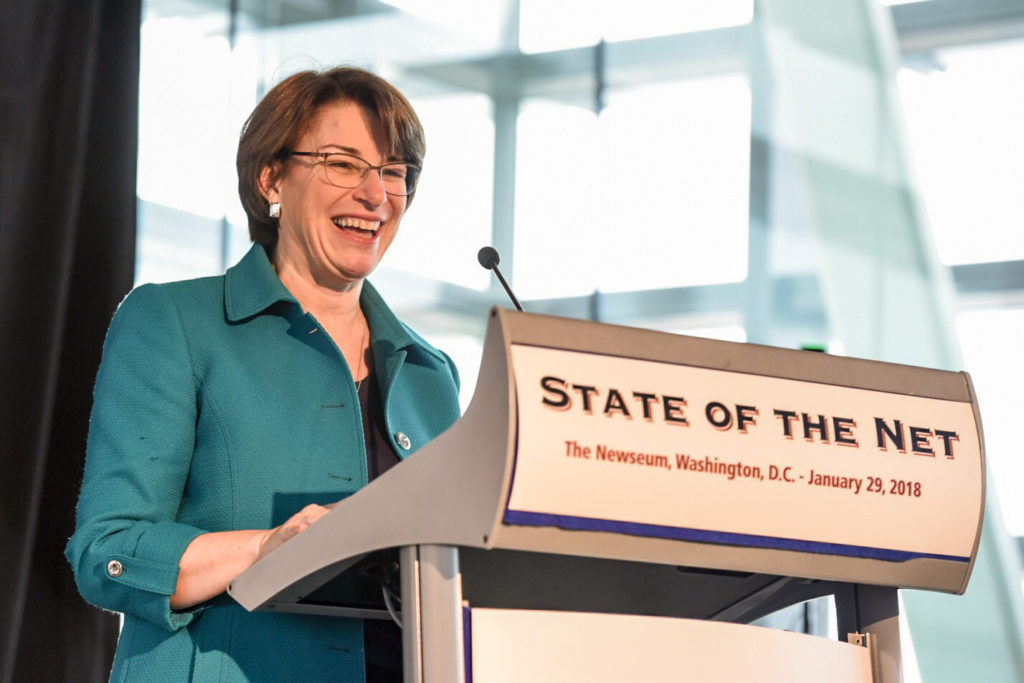
Bio: Klobuchar was born on May 25th, 1960, in Plymouth, Minnesota to middle-class parents. She attended Yale University, graduating magna cum laude in 1982. After earning her law degree at the University of Chicago, she served as a legal adviser to former vice president Walter Mondale. She later worked as a state prosecutor in Minneapolis, before becoming the state’s first female senator in 2006. She gained national exposure in 2018, when, as a member of the Senate Judiciary Committee, she asked Brett Kavanaugh if he had ever “blacked out from drinking”. When an angry Kavanaugh turned the question back on her, she responded that she didn’t have a “drinking problem”.
On Policy: Known as a pragmatist who works across party lines, Klobuchar is one of the most productive senators when it comes to passing legislation. She was the only Democratic presidential candidate to support a bill that condemned President Trump’s decision to withdraw US troops from Syria. In response to Russian meddling in the 2016 election, Klobuchar introduced the “Honest Ads Act” with former Republican senator John McCain, which requires social media platforms to disclose information to users about who is paying for political ads. She also wants America to re-join the Paris climate accord, and supports the Green New Deal. Klobuchar has stated that she wants to reform election laws, including a plan that would register people to vote automatically when they turn 18. As a moderate, she wants to increase legal immigration, and believes that ICE should be reformed rather than abolished.
Criticism: Days before her formal campaign announcement, Klobuchar faced multiple accusations of mistreatment from former staffers. The staffers claimed that they were verbally harassed and threatened over email, and that her unpredictable anger often left her assistants in tears. Her high staff turnover seems to confirm these allegations, and she has acknowledged that she is hard to work for. Moreover, her conduct as a prosecutor in the early 2000’s has been criticized for being too tough on crime; she has since expressed regret, and acknowledged that old approaches to criminal justice were problematic.
Could She Win?: Klobuchar is the first candidate to enter the race who politically identifies as a “liberal moderate,” which sets her apart from the other more left-wing candidates. She has a history of winning in purple states, and she gets things done: 24 of her bills have been signed into law since Trump took office. Although she is not a clear favorite among the Democratic electorate, many have argued that her levelheaded tenacity may be the best suited to take on the incumbent president in the second round.
Tulsi Gabbard – “Bringing a soldier’s heart to the White House”
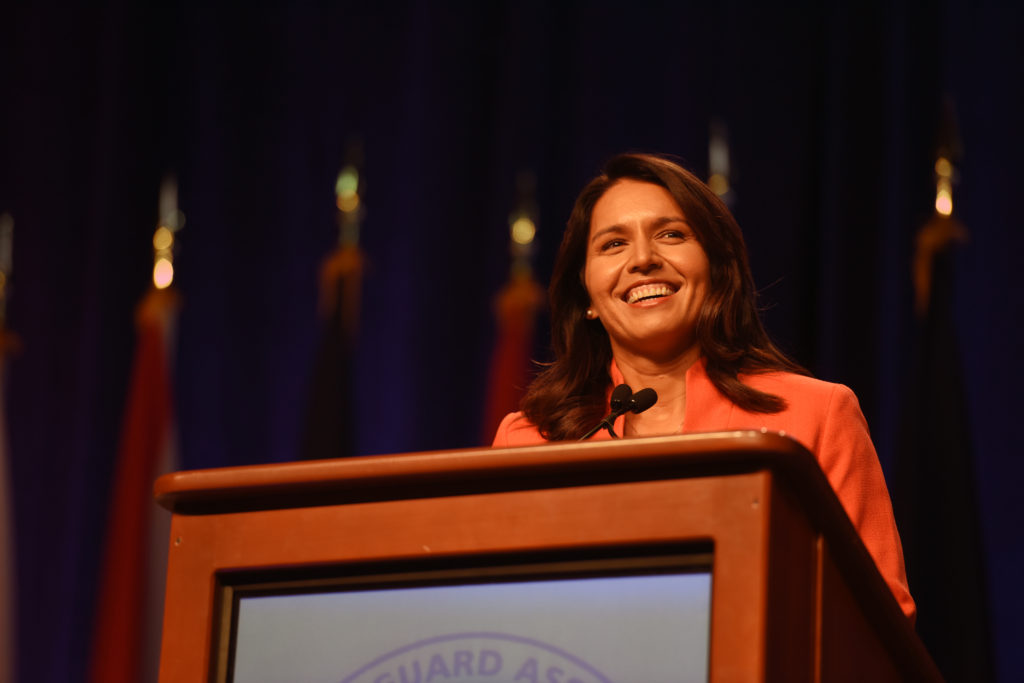
Bio: Gabbard was born in Leloaloa, American Samoa, on April 12th, 1981. Gabbard’s mother is Hindu, and Tulsi also chose this faith as a teenager. She attended Hawaii Pacific University and was elected to the Hawaii State Legislature in 2002, at the age of 21. She later joined the military, and served two tours in the Middle East, specifically in Iraq and Kuwait. In 2012, she became the first Hindu and first American Samoan elected to Congress.
On Policy: An “unorthodox Democrat”, Tulsi Gabbard was an early supporter of Bernie Sanders in 2016, when most Democrats rallied around Hillary Clinton. She strongly opposes US interventionism and regime change efforts abroad, particularly in Saudi-Arabia and Afghanistan. She was a high-profile critic of President Obama’s policies in Syria. Gabbard has also introduced assertive legislation to combat climate change; her “Off Fuels for a Better Future” act bans fracking and would decree a dramatic move away from fossil fuels.
Criticism: Gabbard’s non-conformist style has repeatedly triggered more established Democrats. In 2017 she met with Syrian dictator Bashar Al-Assad without informing top Democrats; this decision angered many. NBC News also claims that several Russian propaganda sites have celebrated Gabbard’s announcement, and defended her views on Assad. Following the alleged Russian interference in the 2016 US election, Russian support is unlikely to play out well in the public eye. On top of that, Tulsi Gabbard has a controversial past regarding her stance on LGBTQ issues. In the early 2000’s she worked for an Anti-LGBTQ organization run by her father, advocating for conversion therapy and opposed same-sex marriage. The candidate has since apologized, but it is still likely to haunt her as her campaign progresses.
Could She Win?: It’s a long-shot. She is only 37 years old, relatively unknown outside of her own state, and apparently ideologically inconsistent. However, she is undeniably charismatic, and popular amongst the far left. In a nation that is increasingly disenchanted with the status-quo, being anti-establishment could play to her advantage.
Kirsten Gillibrand – “Now is our time”
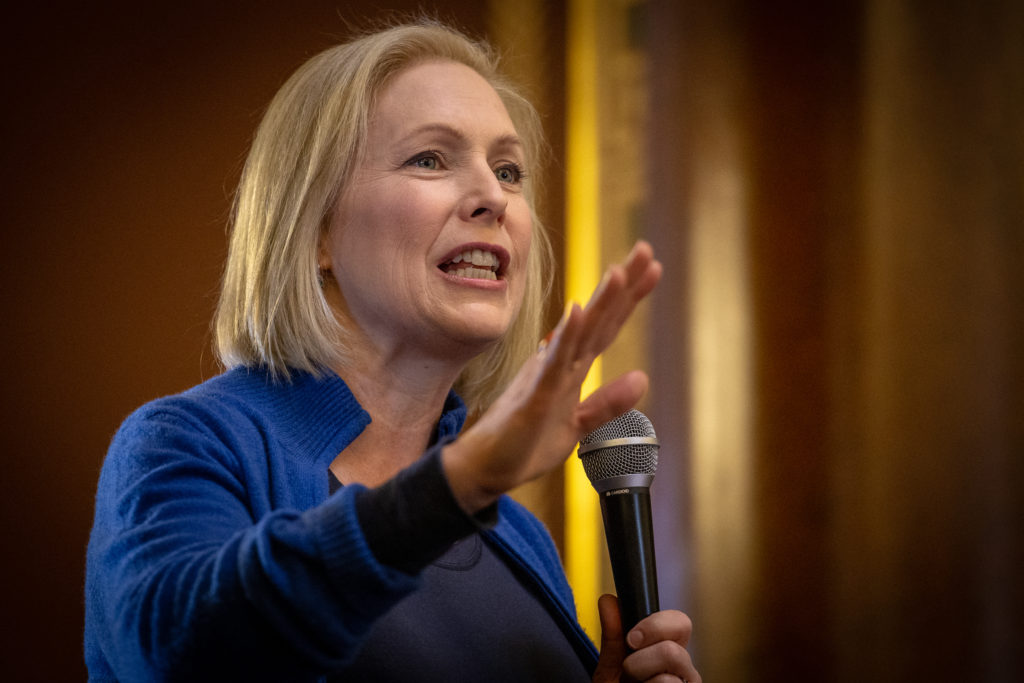
Bio: Gillibrand was born in Albany, New York on December 9th, 1966. She graduated from Dartmouth college in 1988, before earning a law degree at the University of California and joining a New York law firm. Gillibrand helped Hillary Clinton win her senate campaign in 2000, and she made a successful bid to the US House of Representatives as a Democrat in 2006. When Hillary Clinton was named Secretary of State in 2010, Gillibrand was elected to fill her vacated Senate seat.
On Policy: Gillibrand’s focus on issues such as advancing women in the workplace and sexual violence has resulted in her being dubbed the “#metoo Senator”. She lived up to this reputation when she called for prominent Democratic senator Al Franken’s resignation after he was accused of sexual misconduct. She has also worked to change how the military handles sexual assault cases and helped repeal “Don’t ask, don’t tell”. Gillibrand, along with Warren and Harris, co-sponsored Bernie Sanders’ “Medicare-for-All” bill, stating: “I believe health care should be a right and not a privilege” during her campaign announcement. She is a supporter of the “Green New Deal”, as well as a carbon tax. In particular, she has advocated for a federal job guarantee to be a part of the deal; this would entail state partnerships with community colleges in order to establish apprenticeship programs that later ensure jobs.
Criticism: Although she is now one of the more liberal senators, she has been criticized for her inconsistent views. While in the house, she identified as a “Blue Dog” and spouted more conservative policy; before 2010 she had an A rating from the NRA, and she proudly declared that her family shot their own turkeys, and slept with their guns. Gillibrand has justified this shift by claiming that she altered her views to best represent the entire state of New York rather than her small, up-state, more conservative district. Yet, many still view her as a political opportunist.
Could She Win?: While not inconceivable, her base mainly consists of white female Democrats, and these votes are likely to be spread out over the newly diverse field. Yet, she is a very talented fundraiser, and in recent years she has developed a national profile. Nonetheless, in comparison to Kamala Harris, and Elizabeth Warren, Gillibrand’s chances are slim.
Although there are some interesting and progressive male candidates as well, the amount of women that have announced thus far is unprecedented. In a world increasingly dominated by hyper-masculine leaders, the gravity of having a woman in the White House can not be overstated.
